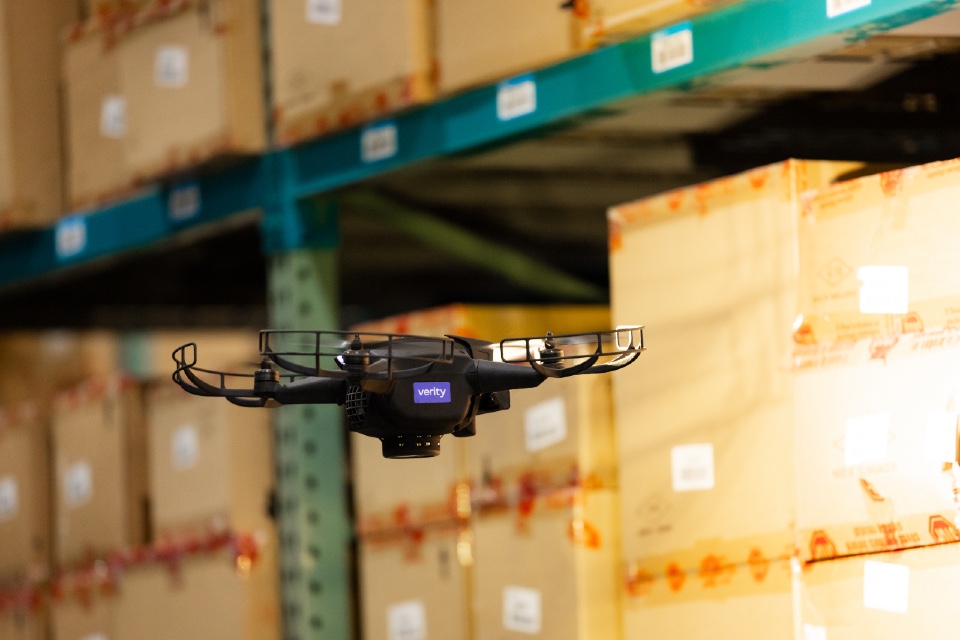Returnable and re-useable transit packaging and equipment is a key business and environmental asset; unfortunately, a huge amount is lost or stolen each year. Warren Harris, Insight and BD Manager at Bakers Basco tells us how they’re using to tech to cut down on attrition and catch thieves in the act…
A major part of the issue is about how we use plastic throughout society, including in the logistics and supply chain. For example, in the bakery industry, Bakers Basco has been using GPS technology for a number of years to help reduce the attrition rates of our plastic bread baskets and dollies. These products are designed to be reused again and again for a life span of up to 10 years, and then, in many cases, recycled once they come to the end of their useful life.
In the current climate, with very real and valid concerns about the volume of non-returnable and non-reusable plastics in the supply chain, there is an increasing focus on Returnable Transit Packaging (RTP).Unfortunately, like many RTP products (like pallets – most of them are supposed to get returned and reused), our plastic baskets and dollies are just too well-designed, sturdy and all-round useful – so they get ‘borrowed’ or taken out of the supply chain. Of course, there are additional costs in terms of harm to the environment – people who misuse returnable packaging tend to dump surplus items at the side of the road or in canals, rather than disposing of them responsibly. Our estimates suggest that 90% will go into a skip, the local council will pick them up and they will end up in landfill – and we all know what that means for the environment.
The right kind of plastic products, used in the right way, can majorly contribute to solving the plastic problem, while helping companies cut costs and improve margins through their use in the ‘circular economy’, where things are built to last and can easily be recycled and the raw materials reused when they reach the end of their life. Bakers Basco manages a pool of circa four million baskets and dollies throughout the UK benefitting members such as Fine Lady Bakeries, Warburtons, Hovis, Allied Bakeries and Frank Roberts; they are an essential part in the transportation of millions of our favourite products to retailers each week.
Aldi UK CEO Giles Hurley last week sent a letter to suppliers outlining the supermarket’s pledge to have all their own label products in 100% recyclable, reusable or compostable packaging by 2022, while Iceland MD Richard Walker recently stated that packaging is only around 5% of the food system’s carbon footprint. With these greener minded changes taking effect in the food industry, how products are transported then becomes a key consideration. Returnable Transit Packaging is going to be an important factor in ensuring that goods delivered in less packaging still reach the shelves in saleable condition, and RTP can also be designed to fit perfectly together, maximizing the amount of stock transported at once, and minimizing the number of delivery vehicles on the roads.
But for the environmental impact of this harmonious circular economy to be seen, we need to devise innovative ways to reduce RTP equipment losses.
Technology has opened up new means of tracing and tracking items as they pass along the supply chain. Such innovations can prove crucial to driving efficiency and cost savings, at the same time addressing key requirements such as sustainability by saving a fortune in disposable packaging and never going into landfill.
Recent examples of innovations we’ve implemented include impregnating the bread basket plastic with a special traceable glitter-like additive which makes them identifiable after recycling and reprocessing to discourage the illegal procurement of the equipment for this purpose. We’ve also successfully deployed tracking technology to make our equipment easier to locate and recover should it fall out of the supply chain, such as satellite imagery and GPS chips. Looking to the future, we’re continually on the lookout for new and innovative ways of cracking down on the loss of returnable transit packaging and have been investigating RFID technology.
To us, the case is clear; the higher we push up the retention and reduce the attrition rates of our bread baskets and dollies, the lower the cost to both the bakery industry and the environment through dumping and unnecessary recycling.
Image by Hans Braxmeier from Pixabay







